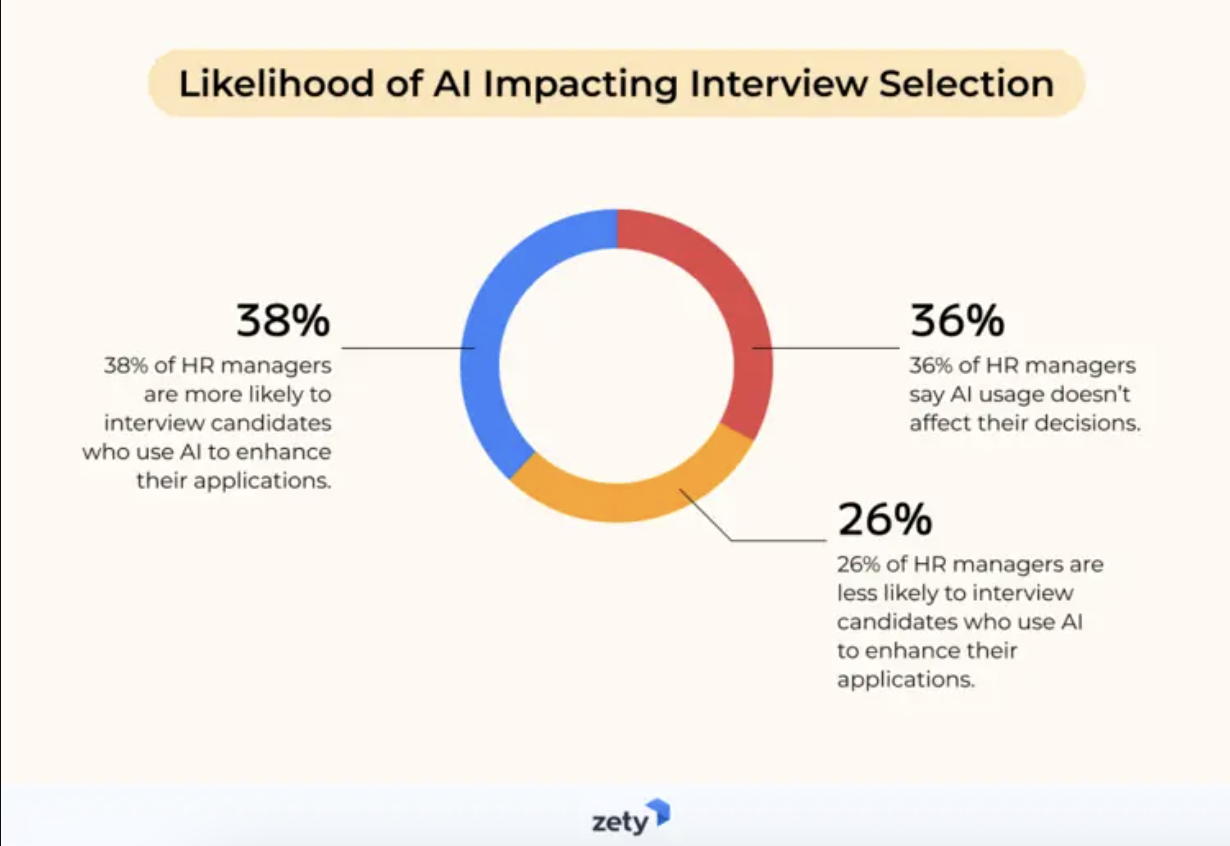
New report reveals widespread impact of AI on recruitment, job losses

HR leaders in the United States are divided on whether they agree on jobseekers' use of artificial intelligence during the job search.
Zety's 2025 Future of Work Report revealed that 58% of HR managers view AI use on the job search as ethical, while 42% disagree.
The findings come as previous research revealed that more than half of jobseekers across the world are already leveraging AI in their job search, with the technology most used in refining resumes.
But Zety's report revealed that despite the mixed reception on AI use, 66% of HR leaders approve of candidates using AI tools for resume creation. They also agree with using AI for cover letter writing (66%) and applying to jobs (59%).
In fact, 38% of the respondents said they are more likely to interview candidates who use AI to enhance their applications.

"While HR managers are increasingly supportive of AI in job applications, the human element — trust, communication, and engagement — remains essential," said Jasmine Escalera, career expert at Zety, in a statement.
"Companies must navigate this intersection carefully to foster a work environment that values both technology and the people who power it."
These findings come amid the widespread penetration of AI in the workplace, where the Zety report found that 71% of employees are already using the technology at some capacity.
This includes 48% who said they use it for work only, and 23% who said they use it for both work and personal use.
But the introduction of AI has raised fears of job losses in the workforce. A quarter of the report's respondents revealed that they have already lost their job because of AI, with the numbers rising for respondents at the age of 25 and below (43%).
Amid these job insecurities, the report found that 95% of employees are already participating in training or taking other steps to improve their AI skills.
"As we move into 2025, the workforce is navigating a landscape shaped by AI, evolving workplace dynamics, and shifting recruiting preferences," Escalera said. "The ability to adapt to these changes — whether through upskilling in AI or understanding how to effectively communicate with HR — is crucial for both employees and employers."